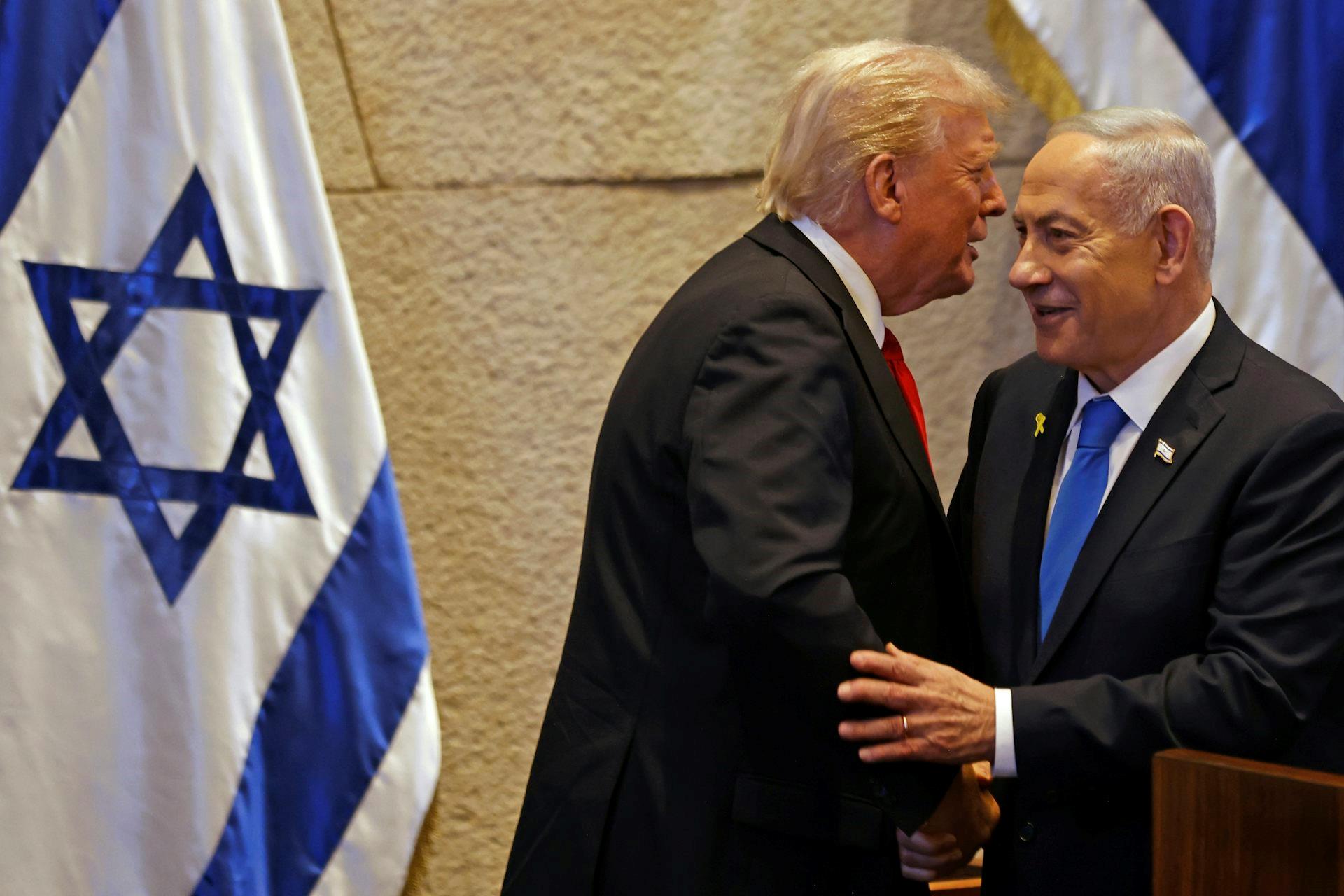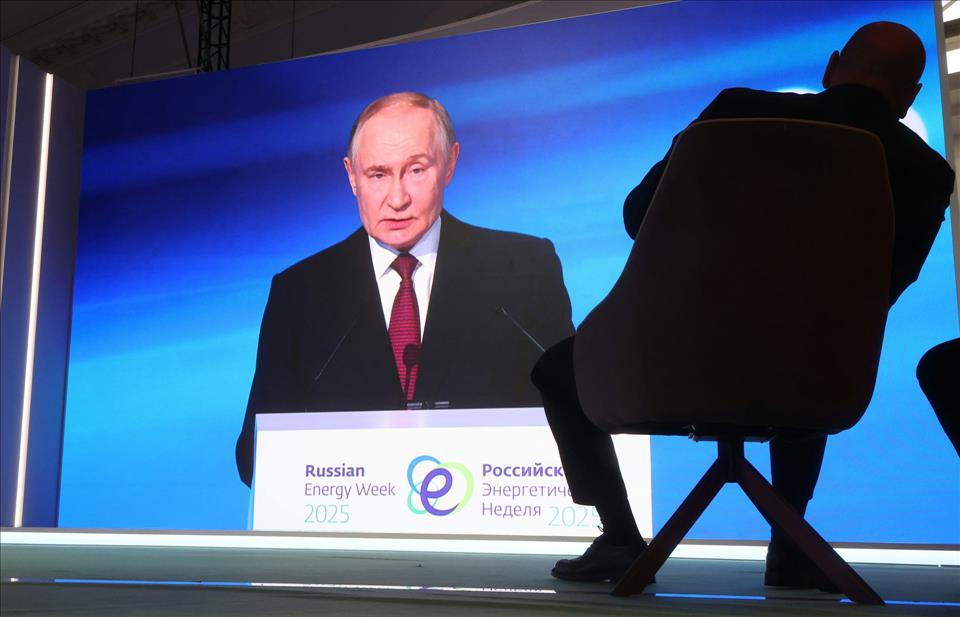
Putin's Forever War Against The West
There's an organisation in Russia called the Valdai Discussion Club, a group of public intellectuals that has met since 2004 to discuss the country's place in the world. It has strong links with government and each year hosts the president, Vladimir Putin, for a day of discussion. This year's talkfest focused, as Putin put it, on“what is happening in the world, the role of our country in it, and how we see its development prospects”.
And that's very interesting when you consider the title of the thinktank's annual report this year, which will particularly appeal to any fans of Dr Strangelove – Dr Chaos or: How to Stop Worrying and Love the Disorder. The report's basic thesis is that because the west is attempting to inflict, in Putin's words“a strategic defeat on Russia”, Russia, in turn, must rise to the threat.
One of the ways it can do that, the Valdai Club's report says, is by recognising that the purpose of conflict is changing and that the“contemporary objective may no longer lie in victories – wherein one party achieves all its goals – but rather in maintaining a balance necessary for a period of relative peaceful development”.
This, writes Stefan Wolff, an expert in international security at the University of Birmingham, would go a long way towards explaining the low-level but constant hybrid warfare that Russia has been waging against the west for more than a decade now, and which blew up in 2022 into an all-out armed conflict in Ukraine.
This so-called“grey-zone warfare” seems to have become ever-present in Europe in recent months. Interference in elections, Russian warplanes flying into other countries' airspace, drone incursions forcing airports to close, regular cyber attacks – they all test the resilience and preparedness of Nato, Wolff believes.
In his analysis, winning the war in Ukraine will involve Russia being able to weaken western resolve and unity. And winning the war will demonstrate that it is capable of doing just that.“In this sense,” Wolff writes,“the intensification of the Kremlin's hybrid war against Kyiv's European allies is a tool Moscow uses as part of its broader war effort.”
Read more: Russia now has a strategy for a permanent state of hybrid war
Wolff's thesis is echoed by Christo Atanasov Kostov, an international relations expert with particular focus on Russia at Schiller International University in Madrid. Kostov analyses Russia's grey-zone“toolkit”, and concludes:“The Kremlin's strategy increasingly favours hybrid means – drones, cyberattacks, disinformation, and energy blackmail – over warfare. These are not random provocations, but a coherent campaign of testing.”
Kostov believes that Russia has set out to exhaust the west, not to conquer it. He draws several conclusions as to where this is likely to lead, concluding that an all-out war with Nato is unlikely,“but not unthinkable”. More likely is an escalation into a new cold war across Europe, meaning permanently increased defence budgets and requiring a stronger focus on coordination across Nato, but also stronger European autonomy to compensate for America's intention to dial down its involvement in the continent's security.
Europe, writes Kostov,“has to resist the fatigue of endless crisis and demonstrate that resilience, not fear, defines the continent's future”.
Read more: Russia's 'permanent test' is pushing Europe to the brink of war – here's what Moscow actually wants
Donald Trump, peacemakerVladmir Putin wasn't among the dignitaries who gathered in Sharm el-Sheikh to sign the“Trump Declaration for Enduring Peace and Prosperity”. This, you'll remember, is the rather grandiosely titled 642-word statement signed by the US president, Egyptian president Abdel Fattah al-Sisi (the meeting's host) and a supporting cast of world leaders including UK prime minister Keir Starmer, French president Emmanuel Macron and Canadian prime minister Mark Carney.
The declaration itself was insubstantial. It welcomed the“historic commitment” by all parties to the Trump peace agreement (also known as the Gaza ceasefire deal) and made a joint commitment to“a comprehensive vision of peace, security, and shared prosperity in the region, grounded in the principles of mutual respect and shared destiny”.
Trump had flown to Egypt hot from his appearance at Israel's parliament, the Knesset, where he took applause from all sides for his achievement in getting Israel and Hamas to agree a ceasefire. The US president was understandably enthusiastic, referring to the“the historic dawn of a new Middle East”.

Best of friends and allies: Donald Trump embraces Benjamin Netanyahu in the Knesset, October 2025. EPA/Jalaa Marey/pool
But is it really? asks David Dunn, a professor of international politics at the University of Birmingham. Dunn felt that the day was more of a performance than anything else. But this in itself might serve a useful purpose. Besides playing to the US president's well-known love for adulation, as Dunn puts it:“For the US to be openly and obviously committed to the peace process makes it more difficult for the opposing parties to reopen hostilities without the risk of incurring US displeasure for ruining their achievement.”
And for Starmer, Macron, Carney and the rest, who risk being mocked in their own countries as also-rans in the scheme of things, Dunn believes that there's a purpose to that as well. The more they encourage Trump to see himself in the role of peacemaker and the more he gets to bask in a praise he has rightly earned for the Gaza ceasefire, the greater the chance that he might redouble his efforts to get Russia to see sense over Ukraine.
As he concludes:“If flattering his [Trump's] ego into directing his energies towards this end achieves this goal, then their part in this iteration of the Trump Show should probably be judged by history as worthwhile.”
Read more: Egypt peace summit showed that Donald Trump's Gaza deal is more showbiz extravaganza than the 'dawn of a new Middle East'
As to how long the ceasefire will stick, at the moment that's changing day by day. We'll continue to monitor events in Gaza as they unfold. The other big question is whether the Israeli prime minister can survive the peace.
John Strawson, who researches Israeli politics at the University of East London, believes that he'll be under pressure ahead of an election which must – if peace holds – be held within a year. Some say the ceasefire is bad news for him. He sold the war on the basis it would achieve total victory and annihilate Hamas. And he may struggle to retain the support of his far-right colleagues who wanted Israel to do just that.
But Strawson believes it would be a mistake to underestimate Netanyahu. He's a wily campaigner who“has made a career out of turning obstacles into opportunities”.
Read more: Can Netanyahu survive peace?
Sign up to receive our weekly World Affairs Briefing newsletter from The Conversation UK. Every Thursday we'll bring you expert analysis of the big stories in international relations.

Legal Disclaimer:
MENAFN provides the
information “as is” without warranty of any kind. We do not accept
any responsibility or liability for the accuracy, content, images,
videos, licenses, completeness, legality, or reliability of the information
contained in this article. If you have any complaints or copyright
issues related to this article, kindly contact the provider above.


















Comments
No comment